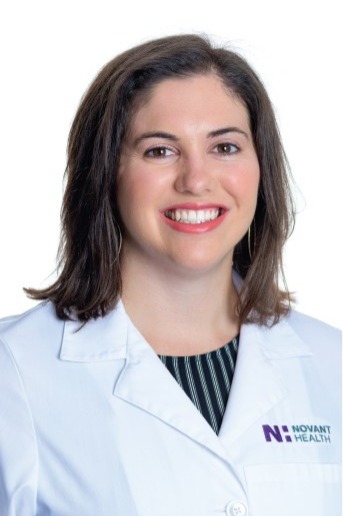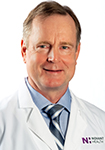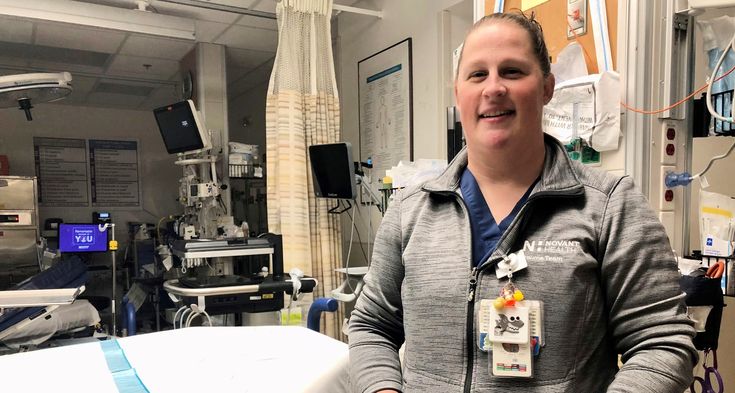Janet Furr’s heart attack could have happened while watering her neighbor’s flowers. But she isn’t sure, because she didn’t exactly feel it.
On that Wednesday in July 2024, Furr’s heart was beating a bit faster than normal, but she otherwise felt fine and chalked it up to the humidity. But when her Apple Watch confirmed an elevated pulse – which proved to be a second cardiac event – Furr couldn’t ignore it.
“The day before, I kind of blew it off,” said Furr, 62. “But when it happened again, I knew something just didn’t feel right.”
She told her husband, David, she needed to seek medical help and they hurried to Novant Health Emergency Department - Scotts Hill, near their home in Porters Neck. Still, she assumed the diagnosis would just be dehydration or perhaps exhaustion.
Then, an electrocardiogram revealed she had suffered a severe heart attack within the previous 24 hours. Furr’s care team immediately transported her to the emergency room at Novant Health New Hanover Regional Medical Center.
“I thought, ‘I’ve been in perfect health and have had no real problems,’” Furr said. “How could I have had a heart attack?”
Take the first step in improving your cardiac health.

Heart disease is the leading cause of death for women in the U.S. But when it comes to heart attacks, women often experience less-alarming symptoms than men. While men typically report chest pain and shortness of breath, typical signs for women can include elevated heart rate, fatigue or pain in the jaw or neck, said Dr. Courtnay Foxwell, a cardiologist at Novant Health Heart & Vascular Institute - Wilmington Main.
“When women come in with a heart attack, I think they tend to brush it off as if it isn’t that big of a deal,” said Foxwell, who focuses on women’s cardiac disease.
Women sometimes misinterpret heart attack signs as menopausal symptoms. And silent heart attacks are even more likely for patients with a family history of heart disease. Even though Furr’s parents had both experienced the condition, she confided, “I never thought it would happen to me.”
A minimally invasive procedure
The next day, Furr was admitted to New Hanover Regional Medical Center’s cardiac catheterization lab. (The hospital has an accreditation from the American College of Cardiology.) During a cardiac catheterization procedure, often just called a “cath,” a cardiologist inserts a thin tube into the patient’s groin or wrist and threads it through the blood vessel to the heart. A minimally invasive procedure, it avoids opening the chest.
An injection of contrast dye reveals any blockages in the blood vessels. Furr said she remembers feeling relaxed but lucid, and she watched as her blood vessels appeared on a screen above her.

Furr had two blockages; one was in the left anterior descending artery (LAD), known as a widow-maker heart attack. Despite the severity of the event, Furr said she was put at ease by cardiologist Dr. Mark Murphy of Novant Health Heart & Vascular Institute - Wilmington Main. She had two stents placed in her arteries to open the blockages. She went home from the hospital the next day, and one week later she was playing pickleball with David.
“I had calm the whole time,” she said. “I knew I was where I needed to be, and I knew they would take care of me.”
Cardiac rehab and recovery
After a heart attack, it is common to experience feelings of anxiety and post-traumatic stress, the American Heart Association reports. For Furr, feelings of disbelief settled in.
Best doctors. Amazing nurses. Remarkable care.
“It was still kind of hard for me to believe that I’d had a heart attack,” she said.
David was a wonderful support, she said. But they didn’t have to go it alone.
Patients treated for a cardiac event at New Hanover Regional Medical Center are introduced to rehab treatment options. Furr chose Dr. Dean Ornish’s Program for Reversing Heart Disease, which offers nine weeks of intensive cardiac rehab services to improve heart health through lifestyle changes. The program also helps patients address anger, anxiety or guilt, making it a holistic, total mind-and-body program for those who are ready to embrace it.
“My goal is to make sure it’s the right fit,” said Audrey Hammond, a registered nurse case manager for Ornish Lifestyle Medicine. “These nine weeks are just the beginning of embracing some lifestyle changes to benefit your heart and overall health.”
The program meets twice a week for four hours at a time, and focuses on exercise, nutritional education, group support and stress management. Participants often see improvements in heart-related blood tests like cholesterol and cardiac enzymes, decreased chest pain, increased energy levels and improved blood pressure control. The service is covered by Medicare and most insurance providers with a qualifying heart diagnosis, and a referral from a cardiologist or primary care doctor.
Stretching and deep-breathing techniques are part of the stress-management component to incorporate stillness into an individual’s daily routine. Hammond said the benefit is especially helpful for retirees like Furr, who often think stress ends when the career does.
“Once they sit still and become aware of their bodies, they realize they’re holding onto tension,” Hammond said. “This program gives them the confidence to exercise on their own, and a restored sense of trust with their bodies.”
Furr said those nine weeks flew by.
“The program helped me find inner peace,” she said. “If you have heart trouble, my advice is to take advantage of the available programs. They offer more than just physical healing; they can also help you emotionally and mentally.”
Furr said those tools have helped her welcome each day with more gratitude, eat a healthier diet and keep moving. She’s thankful she trusted her instincts and sought medical care, even though it never crossed her mind that she could be experiencing a cardiac event.
“If your gut tells you something’s wrong,” she said, “don’t be too proud to act on it.”











